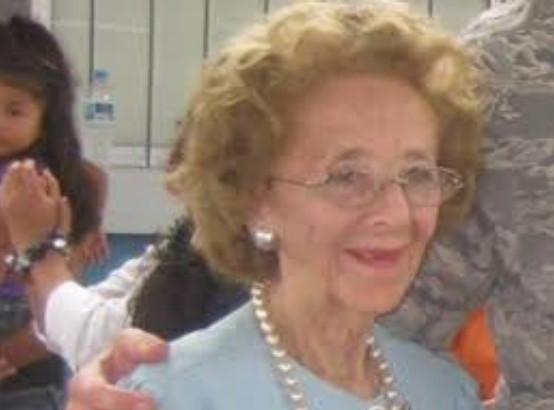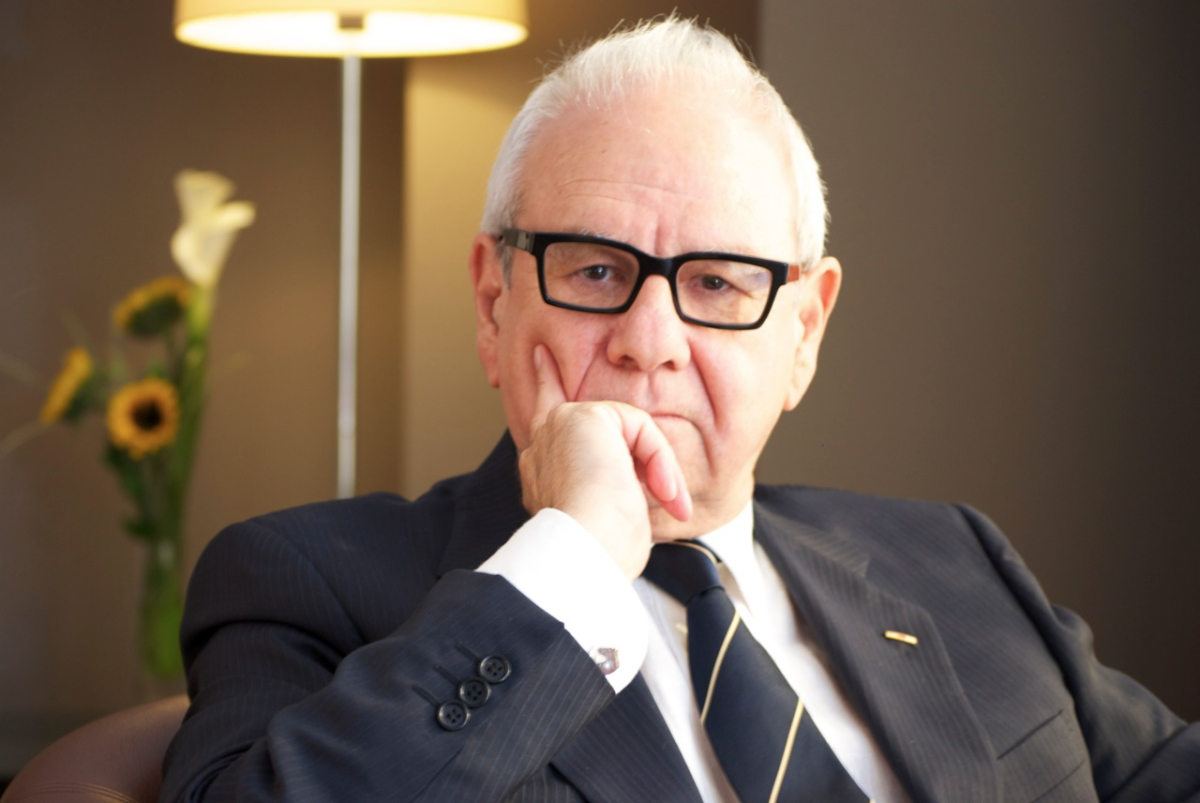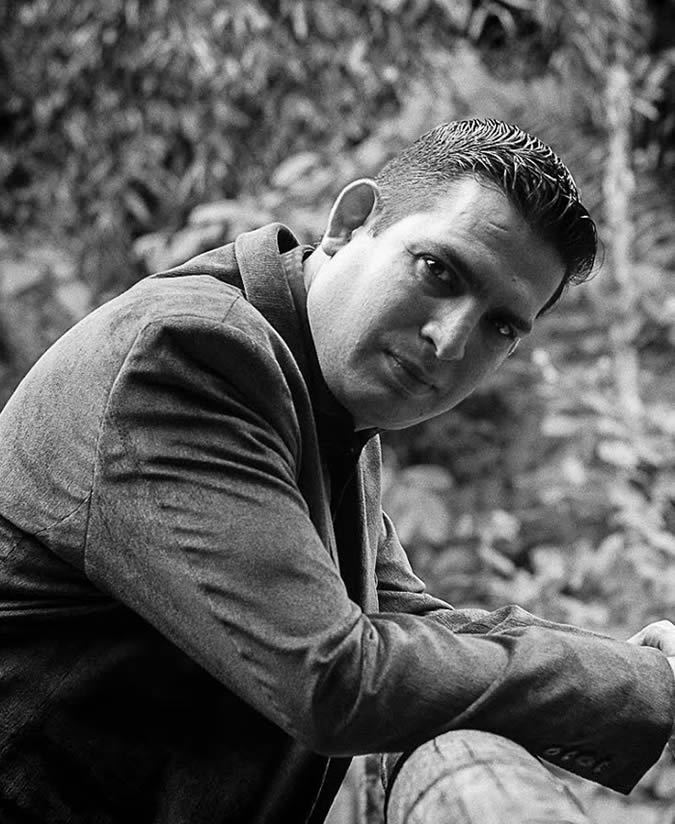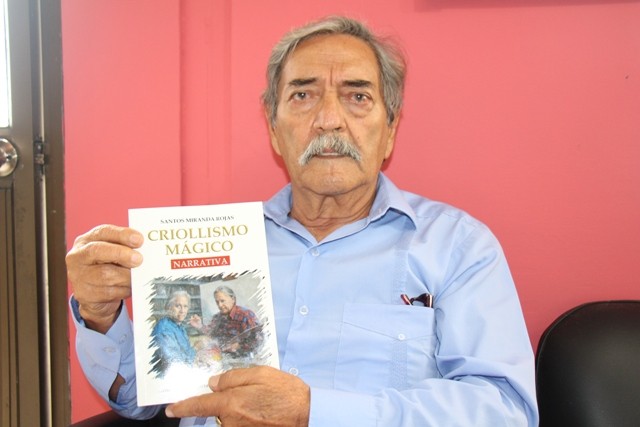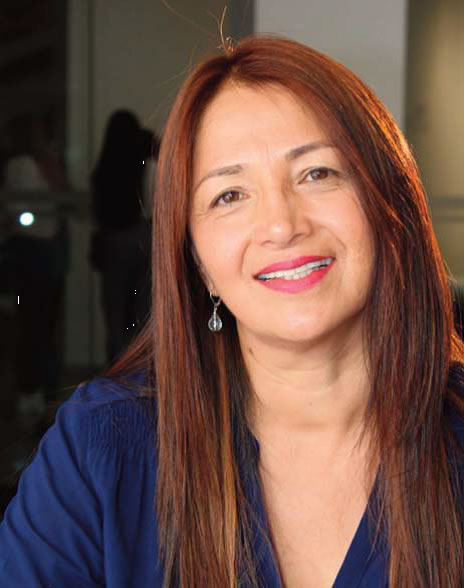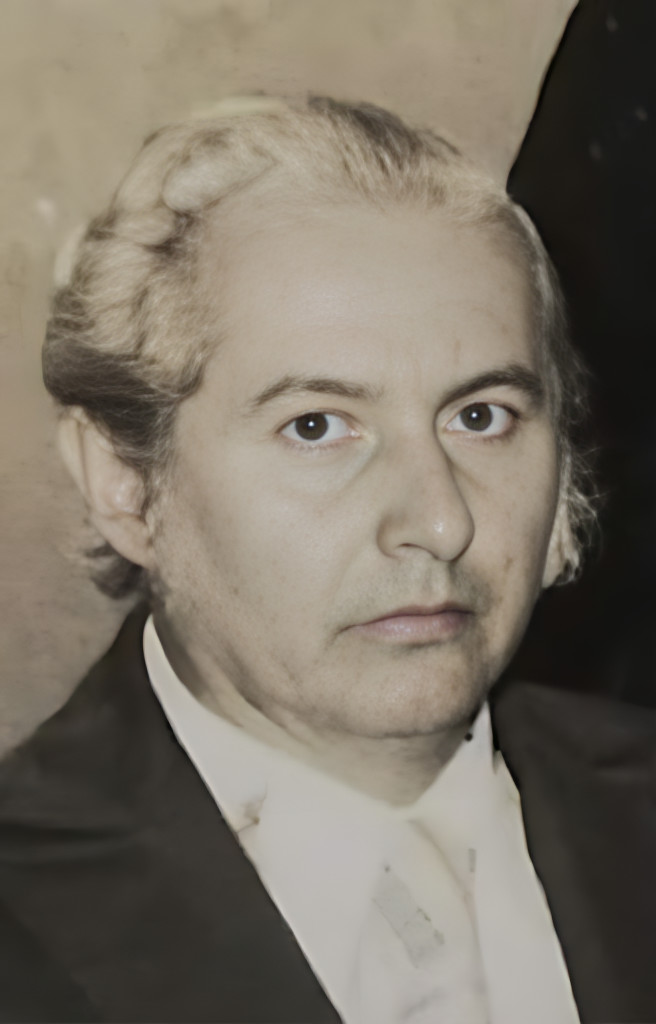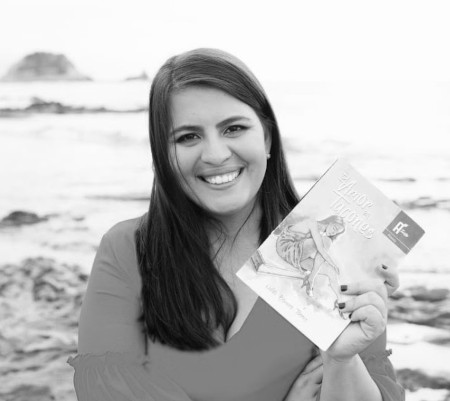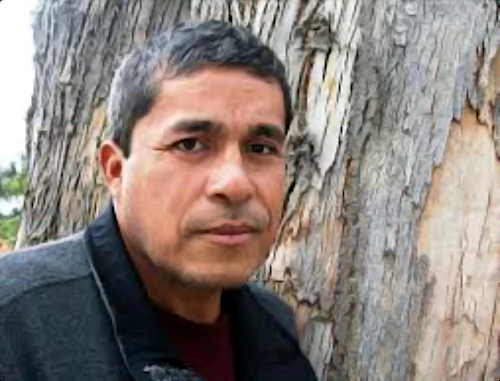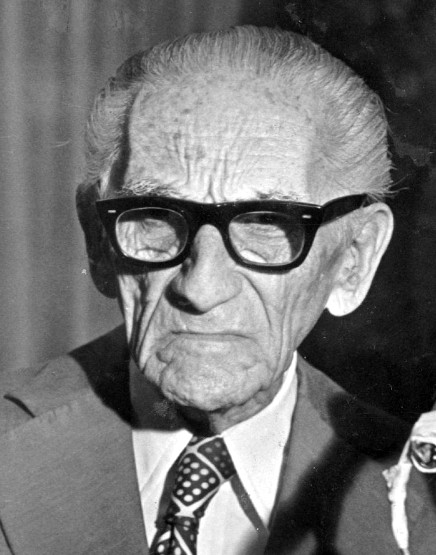Angélica Flores Zambrano (Manta, circa 1919 – ibidem, April 11, 2013) was a celebrated Ecuadorian poet, writer, and educator known as “La Novia de Manta.” She contributed significantly to local culture by authoring hymns for various schools and organizations in Manabí. Flores also contributed articles to publications such as El Universo, El Telégrafo, El Mercurio, El Diario Manabita, and Recado Cultural de Portoviejo. She published a book of poetry and prose, Cartas de María (2001). Her legacy includes numerous awards, and a school in Manta is named in her honor.
Continue reading “Angélica Flores Zambrano”Category: Writers from Manta
Jorge Centeno Medranda
Jorge Centeno Medranda is a foundational figure in Manta’s literary and cultural history, celebrated for his work as a poet and cultural advocate, especially throughout the 1970s. As a founding member of the Grupo Cultural Manta, established in 1965, Centeno Medranda was instrumental in shaping the city’s poetic identity, participating in public readings and literary events alongside other prominent poets, such as Josefa Mendoza de Mora and Angélica Flores Zambrano. Known for his dedication to poetry as an autonomous art form with a focus on language and intellectual depth, he contributed significantly to Manta’s vibrant cultural scene. His influence also extended to educational initiatives, notably through his role in the founding of Unidad Educativa Cinco de Junio, reflecting his commitment to both literary and community development in Manta.
Continue reading “Jorge Centeno Medranda”Humberto E. Robles
Humberto E. Robles (Manta, Manabí, Aug 18, 1938 – Miami, May 20, 2021) was an Ecuadorian writer and a renowned specialist in Ecuadorian and Latin American literatures. He retired from Northwestern University in 2003 after teaching for over 30 years and maintained a remarkable level of scholarly productivity until his death. His notable accomplishments included being named a member of the Ecuadorian Academy of Language, a prestigious cultural institution in Latin America. Professor Robles’s research focused on various topics within Spanish American literature, and he contributed extensively to encyclopedias, journals, and book collections. He authored several influential books and held significant academic positions throughout his career, making significant contributions to the field of literature.
Continue reading “Humberto E. Robles”Carlos Coello García
Carlos Coello García (Manta, 1983) is an Ecuadorian lawyer, writer, and poet. He lives in the city of Santa Ana in the Manabi province. He has published three poetry collections: “La inspiración de un fantasma” (2002) “La creación perfecta” (2009) and “El origen del mal y otros poemas” (2017). His novel, “Leyendas de un fauno” (2018), is the first book in a fantasy trilogy. His latest book, “Oculto” (2022) is a horror novel. Some of his poems and stories have been published in newspapers in his province and digital blogs.
Continue reading “Carlos Coello García”Santos Miranda Rojas
Santos Miranda Rojas (Guayaquil, September 12, 1940) is an Ecuadorian novelist and short story writer. He has lived in the city of Manta in the province of Manabi for many years and mostly identifies as Mantanese or Manabite. He was president of the Manabi chapter of the House of Ecuadorian Culture, president of the Manabi chapter of the Latin American Union of Writers, first president of the cultural group Alfaro Camina, director of the Sunday supplement Séptimo Día of the newspaper El Mercurio of Manta. Among his many accolades are the following: First Prize of the Oswaldo Castro Intriago Biennial Novel Award, presented by the House of Ecuadorian Culture, Manabi; the Intercollegiate Read Book Competition, sponsored by the Municipality of Quito; In 2000, his short story “El Niño Pintor” won silver at an international competition hosted by the government of Argentina, the Buenos Aires Lions Club, the Organization of American States, and the Spanish Embassy. Among his best known works is the novel, “La Casa del Nené” (2009) and the narrative book “Criollismo Mágico” (2014).
.
Continue reading “Santos Miranda Rojas”Damia Mendoza Zambrano
Damia Mendoza Zambrano (Manta, 1966) is an Ecuadorian poet, singer-songwriter, researcher, and university professor. As a poet, she’s represented Ecuador at international festivals in Taiwan, Mexico, Peru, Spain, Cuba, Canada, Argentina, Morroco, and the United States, among others. Her poetry books include, Sueños de Gaviota (1986), El despertar de Gaviota (2001), Desliz (2002), Tras los Cristales de mi Mar (2007), and Hojas de mi noche larga (2012). Her poems have also been published in several anthologies. Some of her poems have been translated into Italian, English and French.
Continue reading “Damia Mendoza Zambrano”José Viliulfo Cedeño Sánchez
Dr. José Viliulfo Cedeño Sánchez (Manta, January 21, 1928 – Manta, February 27, 1986) was an Ecuadorian writer, poet, historian, archaeologist, and university professor. He was a founder and secretary of the Manta Cultural Group, he wrote various textbooks on philosophy, Ecuadorian territorial rights, literature and ethics. His poems were published in, “Itinerario del hombre” and “Voces Manabitas.” In 1985, his most notable book was published, “La Confederación Manteña,” a historical study of Manta’s roots. Two schools in the Manabi province bear his name.
Continue reading “José Viliulfo Cedeño Sánchez”Natalí Romero Torres
Natalí Romero Torres (Manta) is a doctor, clinical sexologist, poet, and writer. She is the author of the poetry collection “El amor en tacones” (2018). Alexis Cuzme, director of the publishing house Tinta Ácida, commented that “El amor en tacones” was written for women. The book’s themes include sensuality, love, heartbreak, disappointment, and emotional support.
Continue reading “Natalí Romero Torres”Pedro Gil Flores
Pedro Gil Flores (Manta, May, 18, 1971 – January 22, 2022) was an Ecuadorian poet and short story writer. He published his first book of poems at the age of 17, Paren la Guerra que yo no juego (1988), followed by Delirium Tremens (1993), Con unas arrugas en la sangre (1997), He llevado una vida feliz (2001) Sano Juicio (2003), 17 Puñaladas no son nada (2010) and Crónico, Poemas del Siquiátrico Sagrado Corazón (2012). In 2014 Gil published a book of short stories titled El príncipe de los canallas (2o14). He has directed a writing workshop at the Eloy Alfaro Lay University of Manabí (ULEAM). He was called the “Ecuadorian Rimbaud” by the literary historian Hernán Rodríguez Castelo. He coordinated the poetry workshop of the Portoviejo branch of the House of Ecuadorian Culture.
Continue reading “Pedro Gil Flores”Hugo Mayo
Miguel Augusto Egas Miranda (Manta, November 24, 1895 – Guayaquil, April 5, 1988), better known by his pen name Hugo Mayo, was an Ecuadorian avant-garde poet and a key figure in 20th-century Latin American literature. Described in the Princeton Encyclopedia of Poetry and Poetics as “one of the most influential figures of the 20th century,” Mayo embraced movements like Dadaism, Ultraism, and Creacionismo, challenging conventional poetic forms. Although he wrote most of his poetry while living in Guayaquil, much of it was published outside of Ecuador, leading to greater recognition in countries like Argentina and Peru, where he was regarded as one of the best poets of his time. His most famous work, El zaguán de aluminio (1982), was reconstructed from memory after the original manuscript was lost in 1922, marking a significant moment in his literary legacy.
Continue reading “Hugo Mayo”
